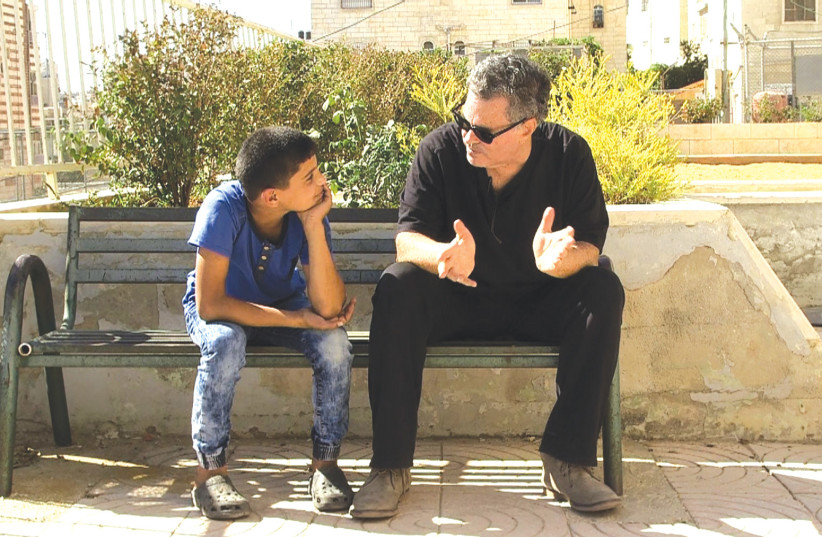Variations on the theme of human rights and the many complex questions connected to them – including freedom of expression, globalization, labor conflicts, LGBTQ issues, racism, sexism, exploitation of children, poverty, food insecurity, the climate change crisis and much more – are explored in the thought-provoking films at the expanded Solidarity and Human Rights Festival at the Tel Aviv Cinematheque from December 9-18. Films will also be shown at the Ennis Auditorium in Jaffa.
The festival will run for 10 days and will feature over 80 films, including documentaries, feature films and shorts from Israel and abroad. Altogether, the festival will present movies from 30 countries.
This year, the festival will be held in person and seeing these often emotionally wrenching movies on the big screen is a very different and more moving experience than watching online.
For the first time, there will be an international competition, as well as an Israeli competition. The European Union is partnering with the festival on a competition of films by Israeli youth.
Danny Wilensky, founder and director of the festival, and Gidi Avivi, the artistic director, said in a statement: “The Solidarity Festival, launched in 2011, is today the largest human-rights event in Israel and the only film festival in the country dedicated entirely to films on human rights. Its existence in Israel is a stand against nationalism and xenophobia.”

Veteran Israeli director Amos Gitai will be celebrated with a tribute that marks his 40 years of filmmaking that focus on human rights. His latest movie, Laila in Haifa, which had its world premiere at the Venice International Film Festival last year, will be the opening-night film.
The movie stars Naama Preis, Clara Khoury, Tsahi Halevy, Makram Khoury, Hisham Suliman, Tom Baum and Hana Laszlo and looks at intertwined stories that take place in and around a bar. Among Gitai’s other films that will be shown at the festival are Free Zone (2005), for which Laszlo won the Best Actress Award at the Cannes Film Festival and which co-stars Natalie Portman and Hiam Abbass; Kadosh (1999), a film about a childless ultra-Orthodox couple pressured to divorce, which predated the current craze for dramas set in the haredi world; Ana Arabia (2013), which stars Yuval Scharf as a woman searching for the truth about an artist in a mixed Arab-Jewish neighborhood; and West of the Jordan River (2017), a documentary about the West Bank.
There will also be a tribute to the work of director, physician and Israel Prize recipient Prof. Yehuda (Judd) Ne’eman, who passed away earlier this year and who co-founded the Solidarity for the Arts, Activism and Human Rights Association. His 1989 film, The Streets of Yesterday, will be screened. It is about a plot to murder a prominent politician, and many felt it presaged the assassination of prime minister Yitzhak Rabin. The 1966 classic, Gillo Pontecorvo’s The Battle of Algiers, a look at the Algerians’ fight for independence from France, which inspired Ne’eman, will be shown in his memory.
Among other highlights of the festival will be Bobbi Jo Hart’s Fanny: The Right to Rock, the story of a garage band founded by Filipinas in the US in the late 60s, which went on to influence many later all-female bands, including the Go Gos, the Runaways and the Bangles. None other than David Bowie called Fanny “one of the greatest rock bands of their time.”
Carl Ludwig Rettinger and Lorenz Findeisen’s The Red Orchestra is a fact-based drama about one of the most important resistance organizations in Nazi Germany.
Peter Kerekes’ 107 Mothers tells the story of the more than 100 mothers serving sentences in a Ukrainian prison.
Yitzhak Rubin’s Cheap Blood examines criminal negligence of safety standards on construction sites in Israel, which has led to the deaths of thousands of workers, 85% of whom are Arabs.
The Solidarity Film and Human Rights Festival is held in collaboration with the Tel Aviv Cinematheque, with the support of the Tel Aviv Municipality, the European Union, the Goethe Institute, Food – A Jewish Answer to Hunger, Zulat-Equality and Human Rights, the New Israel Foundation, BSST – British Shalom-Salaam Trust and many devoted volunteers.
To see the full program and to order tickets, go to www.cinema.co.il.
